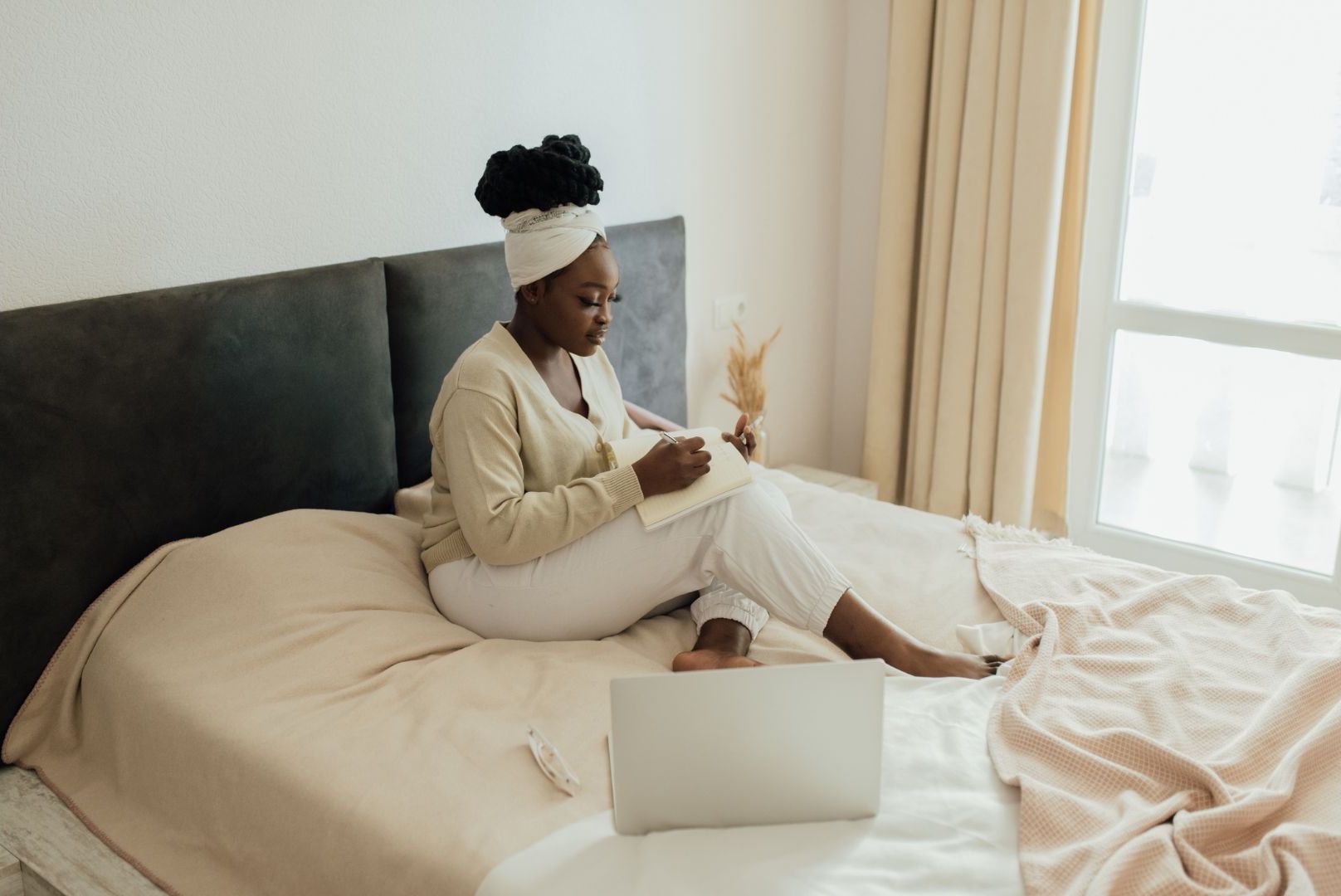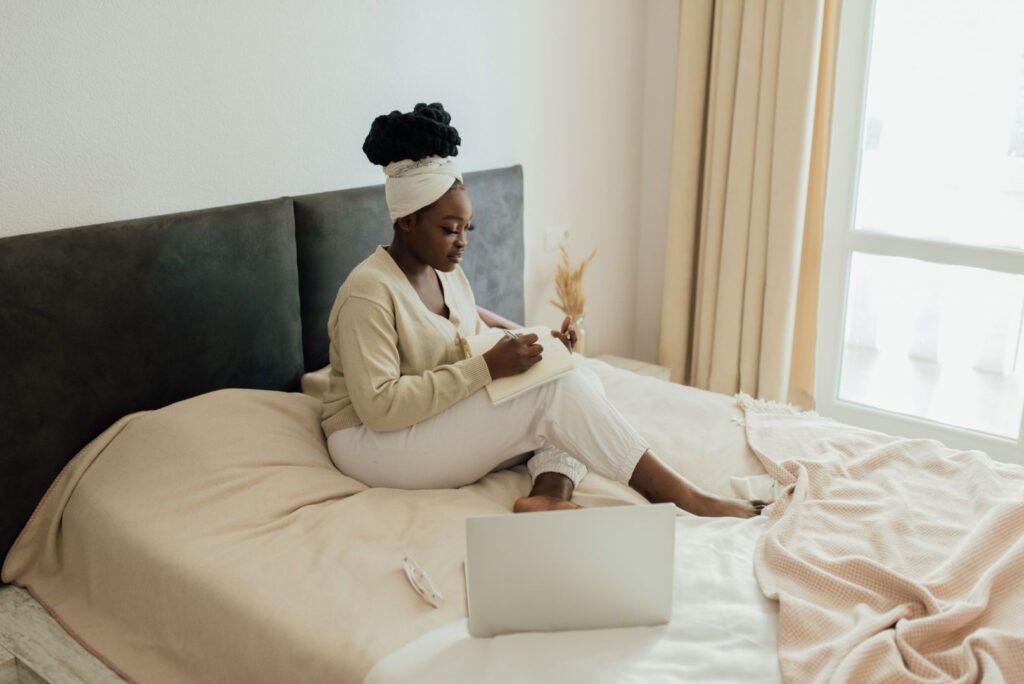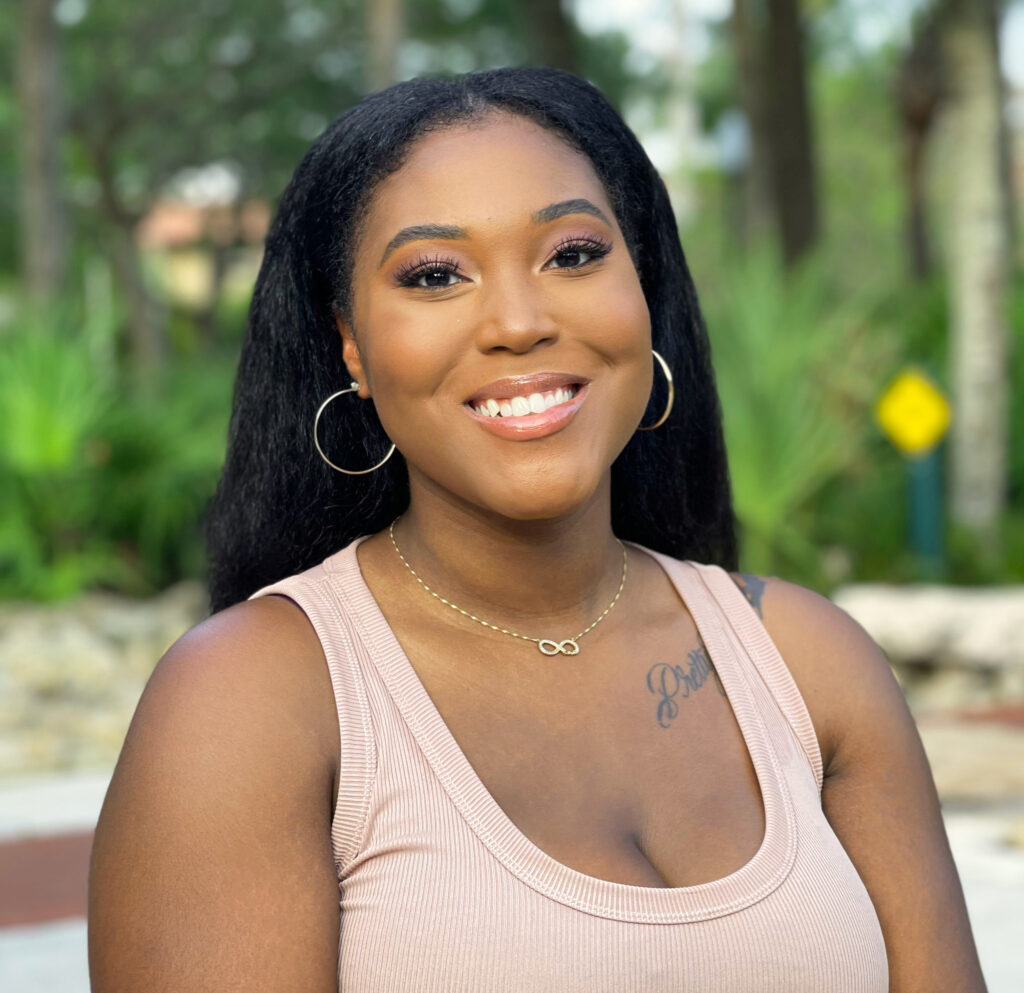
Denied Femininity
Why aren’t Black women allowed to be housewives?

By Jordana Douglas
In the world of Instagram, TikTok, and X (formerly known as Twitter), everyone is free to openly share and talk about their dream lifestyles. Or are they? Imagine scrolling your feed and coming across an innocent-seeming post by a Black woman who shares her desire of one day becoming a mother and stay-at-home wife. The post has gone viral for some reason, and has racked up hundreds if not thousands of likes, shares, and comments. Curiosity gets the best of you, so you take to the comments to see what others have been saying. Though the first few comments appear supportive of her wish, you continue to scroll through what seems like a barrage of attacks on this Black woman’s decision, her character, and how it reflects her “value” as a woman. While some question her worth as a productive member of society, others accuse her of being “lazy” and a “gold digger,” and yet still others attack her choice as succumbing to the patriarchal norms of society and hindering the progress of women. What exactly is happening here and why is it not okay?
The role of women has been a topic of debate in both academia and the larger social context for decades. Shields (1975) traces the history of the psychology of women through the latter half of the 19th century and into the 20th, highlighting the emphasis that was placed on finding biological scientific backing for the widely accepted assumption that women were inherently inferior to men and, thus, were only suitable to serve in the home. Over a hundred years later, progressive scholars and multiple waves of organized feminist movements forced the nation to reckon with its outdated and oppressive values. Second and third wave feminist movements in particular grappled with the concept of “womanhood,” resulting in a call for the conscious awareness of and respect for women’s agency and choice (Malinowska, 2020). Since then, however, many feminist scholars have underscored the need to take a more critical approach to history and the field of gender and sexuality studies.
Fahs and McClelland (2016) pull from other critical scholars in their framework for critical sexuality studies. In addition to other key concepts, they take up the question of agency and, though they speak of agency specifically in relation to sexual interactions, they break down the ways in which agency has been defined in feminist research in a way that feels particularly relevant here. They explain that scholars have disagreed about delineations of feeling agency, being agentic, and being expected to be agentic. Thus, they have explored the concept of agency along two axes: one that defines agency has the presence or perception of having power and choice in one’s activities and refusals, and another that examines how agency serves as a scapegoat for how one adapts to norms. In other words, how one is expected to be “empowered” in ways that assumes everyone can be equally “agentic”. This is notable because we do not often think about whether or not someone can have agency and make their own choices. If we examine this through the lens of both gender and race, it begs the question: What does agency look like for Black women?
It has become more apparent over the years that the feminist movements and theory that have contributed to much of the progress we have seen have struggled to recognize and consider the lived experiences of any woman who is not a White woman (Lafrance & Wigginton, 2019). Kimberlé Crenshaw’s (1989) work on intersectionality highlights how feminist theory often attempts to describe women’s experiences while overlooking the role of race. Regarding the stereotypical roles that have traditionally been assigned to men and women, Crenshaw explains that theoretical statements which attempt to capture the ideological justifications of the past are overgeneralized observations that ignore the reality of Black men and women who are forced to live and navigate a society that creates sex-based norms through which racism simultaneously operates. Thus, while the “observation” that “men and women are taught to view women as dependent, limited, and passive” may be true for White women, the reality for many Black women is that they are not seen as dependent, limited, or passive whatsoever. In fact, Crenshaw notes that Black woman have historically had no choice but to work outside of the home and take on responsibilities that are not traditionally “feminine” because of racism, which directly conflicts with the ideological norms of women.
So, if we return to the question of what agency looks like for Black women, we are forced to acknowledge that Black women have historically been denied any sense of agency and, consequently, denied any sense of traditional “womanhood.” On a societal level, Black women were never assumed to be and relegated to the role of homemaker in the same way White women have. While feminist movements were fighting for White women’s rights to pursue higher education, join the workforce, and take on more active roles in society, Black women were never expected to not work. And, in the face in feminism, Black women are expected to continue to choose to work for the betterment of all women. What then does it mean for a Black woman to dream of being a housewife and a mother? What could be seen as a hindrance to feminism or giving in to archaic patriarchal values could also be viewed as a reclamation of agency and a challenge to expectations. Black woman may not be choosing to be housewives in order to cater to their husbands, rather they are choosing to be housewives to cater to themselves. To allow themselves to live a life they have historically been denied – a life in which they can work but choose not to. And who are we as a society to say when someone can and cannot have the right to choose what they do with their life?
References
Crenshaw, K. (1989). Demarginalizing the intersection of race and sex: A Black feminist critique of antidiscrimination doctrine, feminist theory and antiracist politics. University of Chicago Legal Forum, 1989(1), Article 8.
Fahs, B., & McClelland, S. I. (2016). When sex and power collide: An argument for critical sexuality studies. Journal of Sex Research, 53(4-5), 392-416.
Lafrance, M. N., & Wigginton, B. (2019). Doing critical feminist research: A Feminism & psychology reader. Feminism & Psychology, 29(4), 534-552.
Malinowska, A. (2020). Waves of feminism. The International Encyclopedia of Gender, Media, and Communication, 1, 1-7.
Shields, S. (1975). Functionalism, Darwinism, and the Psychology of Women. American Psychologist, 30(7), 739-54.

Jordana (she/her) identifies as a first-generation Caribbean-American Black woman. She is a clinical psychology PhD candidate at The New School, where her research focuses on the relationships between family connectedness, storytelling, and intergenerational trauma in Black families. Through her research and clinical work, Jordana hopes to expand on the field’s understanding of trauma in communities of color and contribute to the development of culturally informed interventions.